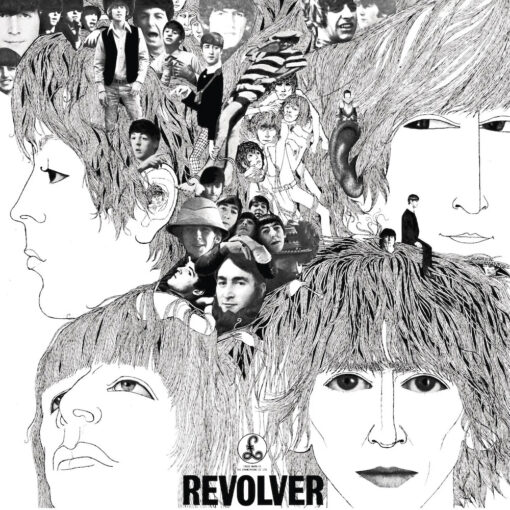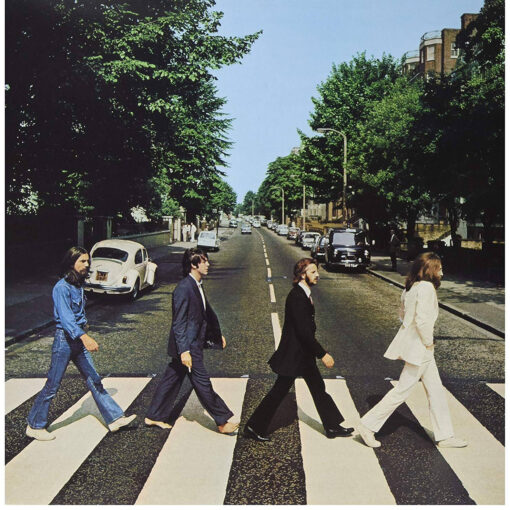- Published on 1966
- Author: Harrison
- Track 1 on “Revolver“
GEORGE 1980: “‘Taxman’ was when I first realized that even though we had started earning money, we were actually giving most of it away in taxes. It was and still is typical.”
JOHN 1980: “I remember the day he (George) called to ask for help on ‘Taxman,’ one of his first songs. I threw in a few one-liners to help the song along because that’s what he asked for. He came to me because he couldn’t go to Paul. Paul wouldn’t have helped him at that period. I didn’t want to do it. I just sort of bit my tongue and said OK. It had been John and Paul for so long, he’d been left out because he hadn’t been a songwriter up until then.”
PAUL 1984: “George wrote that and I played guitar on it. He wrote it in anger at finding out what the taxman did. He had never known before then what could happen to your money.”
GEORGE 1987: “I was pleased to have Paul play that bit on ‘Taxman.’ If you notice, he did like a little Indian bit on it for me.”
About “Taxman”
The song was written by George Harrison, the group’s lead guitarist, helped by John Lennon for lyrics. It protests against the higher progressive taxes introduced in Britain by the Labour government of Harold Wilson, which resulted in the Beatles paying over 90 percent of their income to the Treasury. The song was chosen as the album’s opening track, and helped put Harrison on the map as a songwriter alongside the dominant Lennon-McCartney partnership. It was the group’s first actual song and the first political statement they made in their music.
The Beatles began recording “Taxman” in April 1966, a month after Wilson’s landslide victory in the 1966 general election. Coinciding with the song’s creation, Harrison learned that the band members’ tax obligations would likely lead to their bankruptcy, and he strongly opposed the government using their income to fund the manufacture of military weapons. In the song, which is influenced by 1960s soul/R&B music, the taxman is portrayed as relentless in his pursuit of tax revenue, and Wilson and Ted Heath, the chairman of the Conservative Party, are mentioned by name. The recording features an Indian-influenced guitar solo played by Paul McCartney.
“Taxman” has been seen as a forerunner of punk rock and had a significant impact on the growth of British psychedelia and mod-style music. The Jam significantly referenced the song in their 1980 top-charting single “Start!” Harrison modified the song’s lyrics to include reference to modern leaders while performing “Taxman” on tour in the early 1990s, emphasizing the song’s timeless nature beyond the 1960s. The song’s influence has spread to the tax sector and political discussions over taxes.
Meaning of “Taxman”
The song “Taxman” addresses the issue of taxation, particularly in the United Kingdom, where high tax rates were affecting high-income individuals, including the Beatles themselves. At the time, the top tax rate in the UK was over 90%, and this had a significant impact on the earnings of successful musicians like the Beatles.
In the lyrics, Harrison expresses frustration and resentment towards the tax system. He criticizes the high rates and even mentions specific percentages, such as 19 for the super-tax and 1 for the surtax. The song conveys a sense of discontent and serves as a somewhat tongue-in-cheek commentary on the tax situation in England during that era.
Here are the opening lines of the song:
“Let me tell you how it will be
There’s one for you, nineteen for me
‘Cause I’m the taxman, yeah, I’m the taxman“
Overall, “Taxman” is a clever and somewhat tongue-in-cheek commentary on the financial burdens faced by successful individuals, particularly musicians like the Beatles, who were among the highest-earning artists of their time.
Personnel
- George Harrison – lead vocals, lead guitar.
- John Lennon – backing vocals, rhythm guitar.
- Paul McCartney – backing vocals, bass guitar, lead guitar (solo)
- Ringo Starr – drums, cowbell, tambourine.


One thought on ““Taxman””